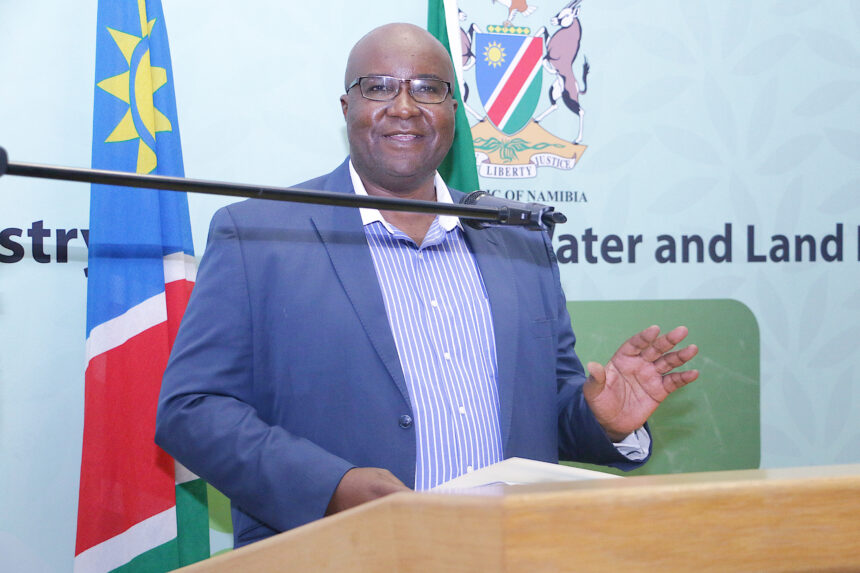Lahja Nashuuta
Land reform, agriculture and fisheries minister Mac Albert Hengari has set sights on expediting Namibia’s land reform programme while also placing modernisation, mechanisation and sustainability high on the ministry’s agenda.
He laid out his vision earlier this week while addressing staff members of the ministry, which platform was used to introduce the minister to the team he will lead for the next five years.
Hengari called for the expedited implementation of the land reform programme to ensure equitable land allocation through resettlement and the productive use of land.
“We must accelerate the implementation of recommendations from the Second Land Conference, and fast-track the promulgation of the Land Bill. This will, amongst other things, provide access to financing opportunities for resettled farmers and leaseholders, especially those in communal areas,” he noted.
The minister emphasised the importance of developing an ancestral land policy to provide a framework for implementing the recommendations of the Ancestral Land Commission.
“This is a matter of justice for our people,” he asserted.
“We must also work towards acquiring commercial agricultural farms, particularly those located near urban areas. This will provide an opportunity to extend local authority boundaries, within the scope of the law, while addressing the concerns and needs of generational workers and people living in corridors,” said Hengari.
Production
The politician then called for the acceleration of agricultural production through the expansion of irrigation systems.
He said it is imperative to develop new schemes, expand existing Green Scheme initiatives, and ensure all agricultural areas are fully-operational to enhance national food production and ensure food security.
“We must guarantee the continuous availability of essential agricultural inputs to support farmers of all scales – small, medium and large,” he said.
There is likewise a need to enhance the capacity of agro-industries.
“We need to allocate our resources to the development of agro-industries because of the potential these industries have in boosting the economies of all 14 regions. They offer a wide range of employment opportunities, from processing to marketing and logistics,” he stated.
He then highlighted the importance of backward and forward linkages created by these industries, connecting producers and harvesters of agricultural produce, as well as inland fisheries, with consumers. This would contribute to the reduction of unemployment, and provide stable livelihoods for the people.
By increasing the production and processing capabilities of agro-industries, Namibia’s overall economic output will rise, positively impacting the gross domestic product (GDP).
Fisheries
With regards to the fisheries and marine resources’ division, Hengari stressed the need for initiatives to enhance value-addition across all Total Allowable Catch (TAC) regulated species.
“We can no longer view our fish as mere raw commodities; we must add value through processing, packaging and innovative product offerings. This will not only create jobs, but will also boost our economy, ensuring that every fish caught contributes to our shared prosperity,” he observed.
On fishing quotas, Hengari said the ministry would work diligently to align allocations with the Namibianisation Policy, which encourages local participation in the fisheries’ sector, while considering regional development.
“The implementation of the scorecard will be done transparently,” he promised.
Regarding access to fishing vessels by Namibian operators, the minister said “We must formulate policies and strategies to build capacity for Namibian operators, and facilitate their access to fishing vessels. The successful implementation of such policies will open doors for more individuals to engage in the fishing industry, fostering entrepreneurship and job-creation within our communities.”
The need to prioritise the development of water supply infrastructure to ensure that all Namibians have access to potable water was likewise underlined.
“I want to specifically highlight the need to implement the project for the construction of the second desalination plant in the Erongo region, as well as the development and optimal utilisation of water resources in the Ohangwena Aquifer and Neckartal Dam,” he stated.
-lnashuuta@gmail.com
Photo: Heather Erdmann



